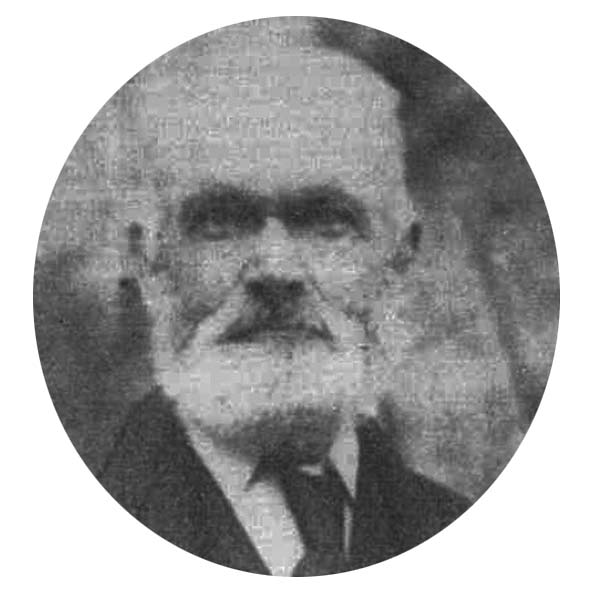John Simpson 1830-1917

John Simpson of Drumreagh, Ballygowan, was a handloom weaver to trade, and also one of the most famous country fiddlers of his generation. He played at dances in the large country houses such as Finnebrogue, Delamont and Florida Manor, as well as playing in halls and farmhouses. Pupils used to go to his home for lessons, but when he was an old man, and retired from weaving, he travelled round the country and taught pupils in their own homes. His expertise in the art of ‘crushed bowing’ (very similar to the ‘driven bow’ that is characteristic of Scottish fiddling — but without lifting the bow off the string on the second note) was passed on to his pupils and made them instantly recognizable to anyone interested in fiddle music. One of the Gordon family of Florida Manor arrived on horseback at Simpson’s home one summer night. He did not tie up his horse, because he assumed that he would have learned to play the fiddle before his horse got restless!
Some of Simpson’s pupils were also famous in their day as dance music fiddlers. Just a few of these were: Willie McCloy, Derryboye; William James Gibson, Ballykeigle; Geordie Montgomery, Killinchy; Willie Glover, Drumaghlis; David Carse, Magherascouse; William John and Sam Crawford, Magherascouse; and Adam Haslett, Drumreagh.
Tags:
NOTICE
The Ulster-Scots Academy has been an integral part of the Ulster-Scots Language Society since 1993. The name "Ulster-Scots Academy" is registered to the USLS with the Intellectual Property Office.
LATEST
A new edition of Michael Montgomery’s From Ulster to America: The Scotch-Irish Heritage of American English recounts the lasting impact that at least 150,000 settlers from Ulster in the 18th century made on the development of the English language of the United States. This new edition published by the Ulster-Scots Language Society documents over 500 ‘shared’ vocabulary items which are authenticated by quotations from both sides of the Atlantic. A searchable online version of this dictionary is now also available here.
FORTHCOMING
The Ulster-Scots Academy is currently working on the digitisation of Dr Philip Robinson's seminal Ulster-Scots Grammar and the English/Ulster-Scots part (with circa 10,000 entries) of a two-way historical dictionary of Ulster-Scots. These projects are planned to be completed and available on the site in 2016.
SUPPORT US
This site is being developed on a purely voluntary basis by the Ulster-Scots Language Society at no cost to the taxpayer. USLS volunteers have been involved in preserving and promoting Ulster-Scots for more than 20 years. All donations, however small, will be most gratefully received and contribute towards the expansion of the project. Thank you!
This site is being developed by the Ulster-Scots Language Society (Charity No. XN89678) without external financial assistance. USLS volunteers have been involved in preserving and promoting Ulster-Scots for more than 20 years. All donations, however small, will be most gratefully received and contribute towards the expansion of the project. Thank you!

(Friends of the Ulster-Scots Academy group)


